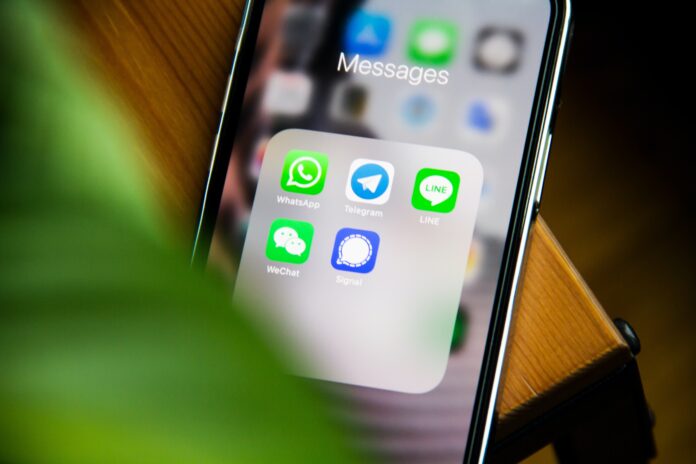SMS, or Short Message Service, is a widely used communication technology that enables the exchange of short text messages between mobile devices. It has become an integral part of modern communication, allowing individuals to send and receive messages quickly and conveniently. In this comprehensive guide, I will delve into the various aspects of SMS, its history, functionalities, advantages, and important considerations. Here are ten key points to provide you with a solid understanding of SMS:
1. Definition and Functionality: SMS is a text messaging service that allows the transmission of short messages, typically limited to 160 characters per message. It operates on the signaling channels of a mobile network, utilizing the unused bandwidth to deliver messages. The primary purpose of SMS is to provide a simple and efficient means of communication between mobile devices.
2. Development and History: SMS was first introduced in the Global System for Mobile Communications (GSM) standard in the 1980s. Initially, it was seen as a supplementary feature with limited functionality. However, as mobile networks expanded and technology advanced, SMS gained widespread popularity and became a fundamental component of mobile communication.
3. Message Delivery: SMS messages are transmitted through the control channel of a mobile network, which ensures their delivery alongside voice and other data services. When a user sends an SMS, it is routed through the Short Message Service Center (SMSC), a central component of the mobile network responsible for storing and forwarding messages to the recipient’s device.
4. Compatibility and Interoperability: One of the significant advantages of SMS is its compatibility across different mobile networks and devices. As long as both the sender and receiver have a mobile phone capable of SMS, they can exchange messages regardless of the network operator or device manufacturer. This interoperability has contributed to the widespread adoption and success of SMS.
5. Cost and Pricing: SMS messages are generally charged based on the mobile service plan or tariff chosen by the user. In many cases, SMS is included in standard mobile plans, allowing users to send and receive messages without incurring additional charges. However, certain premium or international SMS services may involve additional fees.
6. Worldwide Adoption: SMS has achieved remarkable global adoption, with billions of messages exchanged every day. Its widespread availability, ease of use, and low cost have made SMS the preferred choice for personal and business communication. Moreover, SMS has found applications in various industries, including marketing, customer service, and emergency alerts.
7. Security and Reliability: SMS messaging provides a relatively secure and reliable form of communication. Messages are encrypted during transmission, making it difficult for unauthorized parties to intercept or decipher them. Additionally, SMS uses store-and-forward technology, ensuring message delivery even if the recipient’s device is temporarily unavailable.
8. Limitations and Character Constraints: SMS messages are limited to 160 characters due to technical constraints inherited from the early days of the technology. While this limitation encourages concise and efficient communication, it can pose challenges when conveying lengthy or complex messages. To overcome this limitation, modern messaging applications often split long messages into multiple parts or utilize alternative messaging platforms.
9. SMS-Based Services and Applications: SMS has been leveraged to develop a wide range of value-added services and applications. These include SMS-based banking, mobile payment systems, two-factor authentication (2FA), SMS voting in reality shows or elections, and automated notifications from service providers. SMS continues to evolve and adapt to meet the changing needs of users and businesses.
10. Future Trends and Alternatives: As technology advances, new messaging platforms and alternatives to SMS have emerged. Over-the-top (OTT) messaging applications like WhatsApp, Facebook Messenger, and WeChat have gained popularity, offering additional features such as multimedia sharing, group chats, and voice calling. However, SMS remains relevant and widely used, particularly in areas with limited internet connectivity or for simple text-based communication.
SMS, or Short Message Service, was introduced in the 1980s as a supplementary feature in the GSM standard. Initially, it had limited functionality and was seen as a secondary feature of mobile networks. However, as technology advanced and mobile networks expanded, SMS gained widespread popularity and became an essential component of mobile communication.
The functionality of SMS revolves around the transmission of short text messages, usually limited to 160 characters per message. These messages are sent through the signaling channels of a mobile network, utilizing the unused bandwidth. When a user sends an SMS, it is routed through the Short Message Service Center (SMSC), which acts as a central component of the mobile network. The SMSC is responsible for storing and forwarding messages to the recipient’s device, ensuring their delivery alongside voice and other data services.
One of the key advantages of SMS is its compatibility and interoperability. Regardless of the network operator or device manufacturer, as long as both the sender and receiver have a mobile phone capable of SMS, they can exchange messages seamlessly. This interoperability has contributed significantly to the widespread adoption and success of SMS as a communication technology.
The cost and pricing of SMS messages vary depending on the user’s mobile service plan or tariff. In many cases, SMS is included in standard mobile plans, allowing users to send and receive messages without incurring additional charges. However, certain premium or international SMS services may involve additional fees.
SMS has achieved remarkable global adoption, with billions of messages exchanged every day. Its widespread availability, ease of use, and low cost have made SMS the preferred choice for personal and business communication. Moreover, SMS has found applications in various industries, including marketing, customer service, and emergency alerts, further solidifying its importance in everyday communication.
In terms of security and reliability, SMS messaging provides a relatively secure means of communication. Messages are encrypted during transmission, making it difficult for unauthorized parties to intercept or decipher them. Additionally, SMS utilizes store-and-forward technology, which ensures message delivery even if the recipient’s device is temporarily unavailable.
Despite its advantages, SMS has limitations. The 160-character limit poses a challenge when conveying lengthy or complex messages. However, modern messaging applications often address this limitation by splitting long messages into multiple parts or utilizing alternative platforms that support longer texts or multimedia content.
SMS has also been leveraged to develop a wide range of value-added services and applications. These include SMS-based banking, mobile payment systems, two-factor authentication (2FA), SMS voting in reality shows or elections, and automated notifications from service providers. SMS continues to evolve and adapt to meet the changing needs of users and businesses, ensuring its relevance in the digital age.
As technology advances, new messaging platforms and alternatives to SMS have emerged. Over-the-top (OTT) messaging applications like WhatsApp, Facebook Messenger, and WeChat offer additional features such as multimedia sharing, group chats, and voice calling. However, SMS remains relevant and widely used, particularly in areas with limited internet connectivity or for simple text-based communication.
In conclusion, SMS has become an integral part of modern communication, offering a simple and efficient means of exchanging short text messages between mobile devices. Its compatibility, reliability, and global adoption have made SMS a ubiquitous communication technology. While alternative messaging platforms have gained popularity, SMS continues to thrive and evolve, ensuring reliable and efficient communication for billions of users worldwide.

















